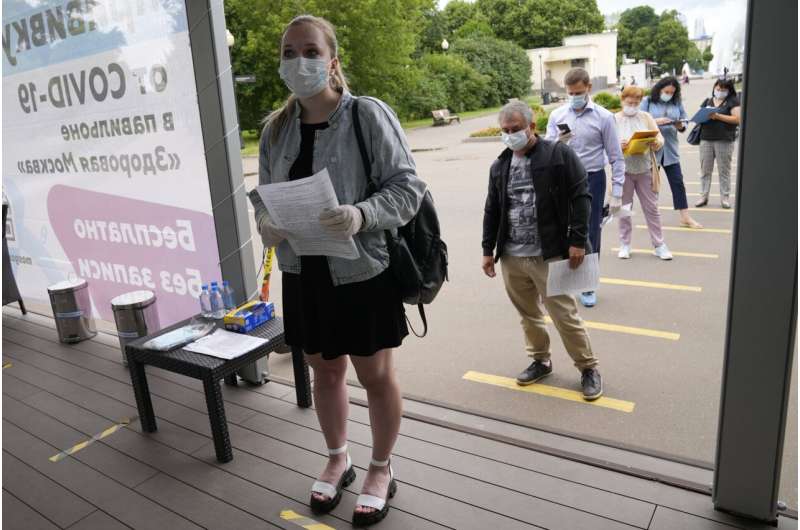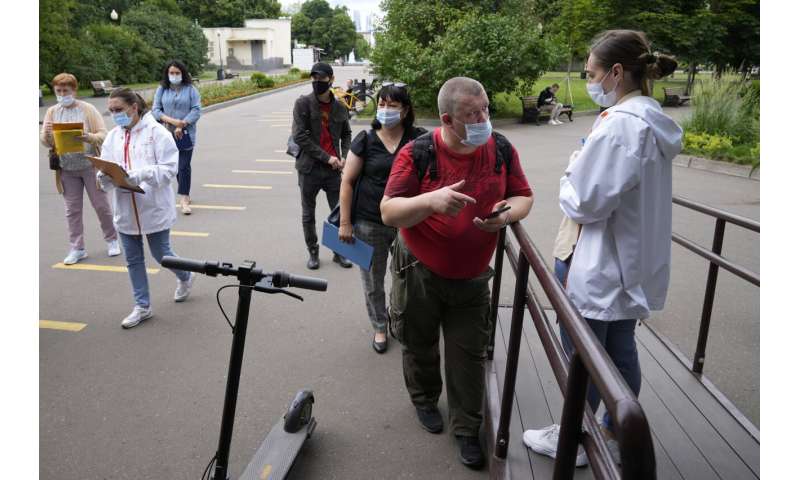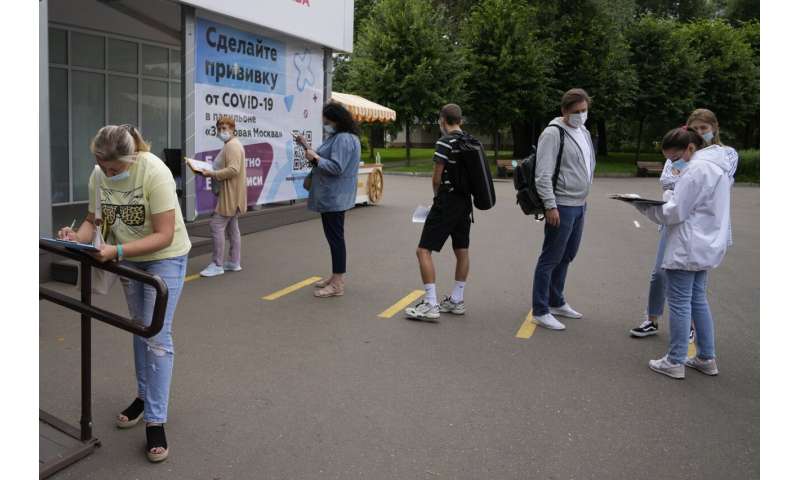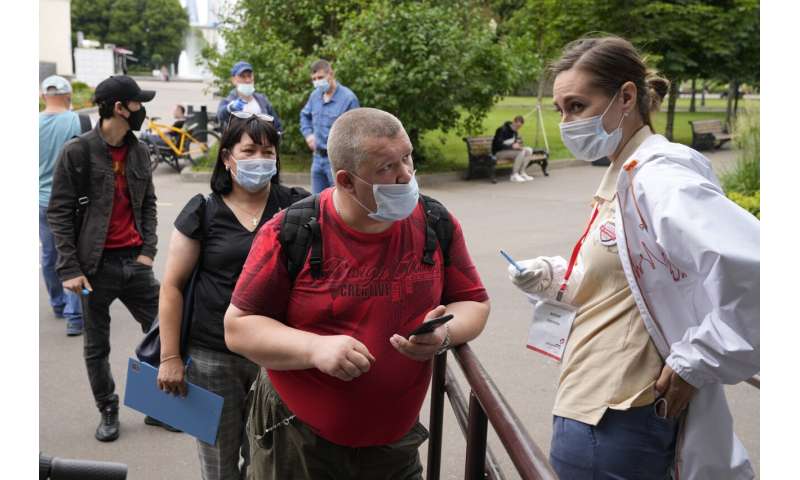betamethasone 21 phosphate
 how to buy levaquin pharm support group without prescription Russia’s vaccination rates have picked up in recent weeks, after authorities in many regions made shots mandatory for employees in certain sectors. Credit: AP Photo/Alexander Zemlianichenko” width=”800″ height=”530″>
how to buy levaquin pharm support group without prescription Russia’s vaccination rates have picked up in recent weeks, after authorities in many regions made shots mandatory for employees in certain sectors. Credit: AP Photo/Alexander Zemlianichenko” width=”800″ height=”530″>
Russian health authorities on Thursday launched booster coronavirus vaccination for those who had been immunized more than six months ago, as the country faces a surge in new infections and deaths.
Moscow Mayor Sergei Sobyanin said he had received a booster shot and urged city residents to follow suit.
“In view of the difficult epidemiological situation today, doctors recommend having booster shots six months after vaccination,” Sobyanin said on his blog. “I’m pleading with you not to miss a chance to get additional protection from the virus, which is particularly important amid the spread of a more aggressive delta variant.”
Moscow health authorities on Thursday started offering booster shots with the domestically produced, two-shot Sputnik V vaccine and its one-shot Sputnik Light version. Other Russian regions are also starting to offer booster shots.
Health Minister Mikhail Murashko told a government meeting Tuesday that the ministry has issued guidelines allowing those who contracted COVID-19 to get vaccinated six months after they recovered, and those who have been immunized to get booster shots six months after their first vaccination.
Health authorities said that the more contagious delta variant of the virus has accounted for the bulk of recent new infections in Moscow and some other regions. The nation’s chief sanitary doctor, Anna Popova, confirmed Tuesday that the authorities also registered the first infection with the “delta plus” variant, which has an extra mutation, although its significance is unclear.

Deputy Prime Minister Tatyana Golikova has cited studies indicating that immunity in those who have recovered from the virus persists for six months on average and winds down gradually after nine to 12 months.
The Health Ministry’s guidelines indicated that the booster shots will be rolled out until at least 60% of the population has immunity against COVID-19. Once that goal is reached, booster shots will be delivered once a year.
With most vaccinations, scientists believe people get more protection if there is an extended interval between the shots. There is no evidence that having more vaccines within a short amount of time increases the amount of immune protection. It’s also unclear how long protection from COVID-19 vaccines last and who will need a booster.
The new guidelines come as infections in Russia soar and vaccination rates lag behind many other nations.
Russia’s state coronavirus task force has been reporting over 20,000 new COVID-19 infections daily since last Thursday, more than double the average in early June. On Thursday, it reported 23,543 new cases and 672 deaths—the highest daily death toll since the start of the pandemic.

Russian officials have blamed the rise in cases on Russians’ lax attitude toward taking precautions, the growing prevalence of more infectious variants and vaccine hesitancy. Although Russia was among the first countries to announce and deploy a coronavirus vaccine, just over 23 million people—or 15% of its 146 million population—have received at least one shot.
President Vladimir Putin revealed during Wednesday’s call-in show that he had received the Sputnik V vaccine earlier this year and stressed the importance of getting vaccinated. The Russian leader, who had received the shots out of the public eye, had previously refused to identify the vaccine he got to avoid offering a competitive advantage to its maker. Sputnik V is the most widespread of the four domestically-designed vaccines in circulation.
Russia’s vaccination rates have picked up in recent weeks, after authorities in many regions made shots mandatory for employees in certain sectors, such as government offices, retail, health care, education, restaurants and other services.
While reaffirming his position that vaccinations should be voluntary, Putin emphasized that mandatory vaccination for some workers was based on the law and voiced hope that it could help prevent a nationwide lockdown.
A spike in vaccination over the past days was quickly followed by reports of vaccine shortages in a number of Russian regions, and some experts have questioned whether Russia will have enough vaccines to go around.

Officials said earlier this week that 36.7 million sets of four domestically-developed coronavirus vaccines have been released into circulation in Russia, and 30 more million are expected to be produced in July.
As a new wave of contagion spread, authorities in some regions have started imposing travel restrictions.
From Thursday the southern Krasnodar region, which has a long stretch of the Black Sea coast, required incoming hotel and resort clients to produce a certificate of vaccination, a negative COVID-19 test or a document showing they had been previously sick with the virus.
Source: Read Full Article
